
Whether you’re a beginner or an advanced harpist or harper, Janet’s courses are designed to inspire, guide, surprise and support your musical journey in all areas of skill and repertoire. Explore her offerings and find your perfect course
‘Learning by ear’ through flexible and creative play, in session (social) participation as well as formal performance, the skills of ‘traditional’ musicianship are established and assured enabling fluency before literacy – accessible to all ages - and structured as language in a graded system evolved from the 1980s.
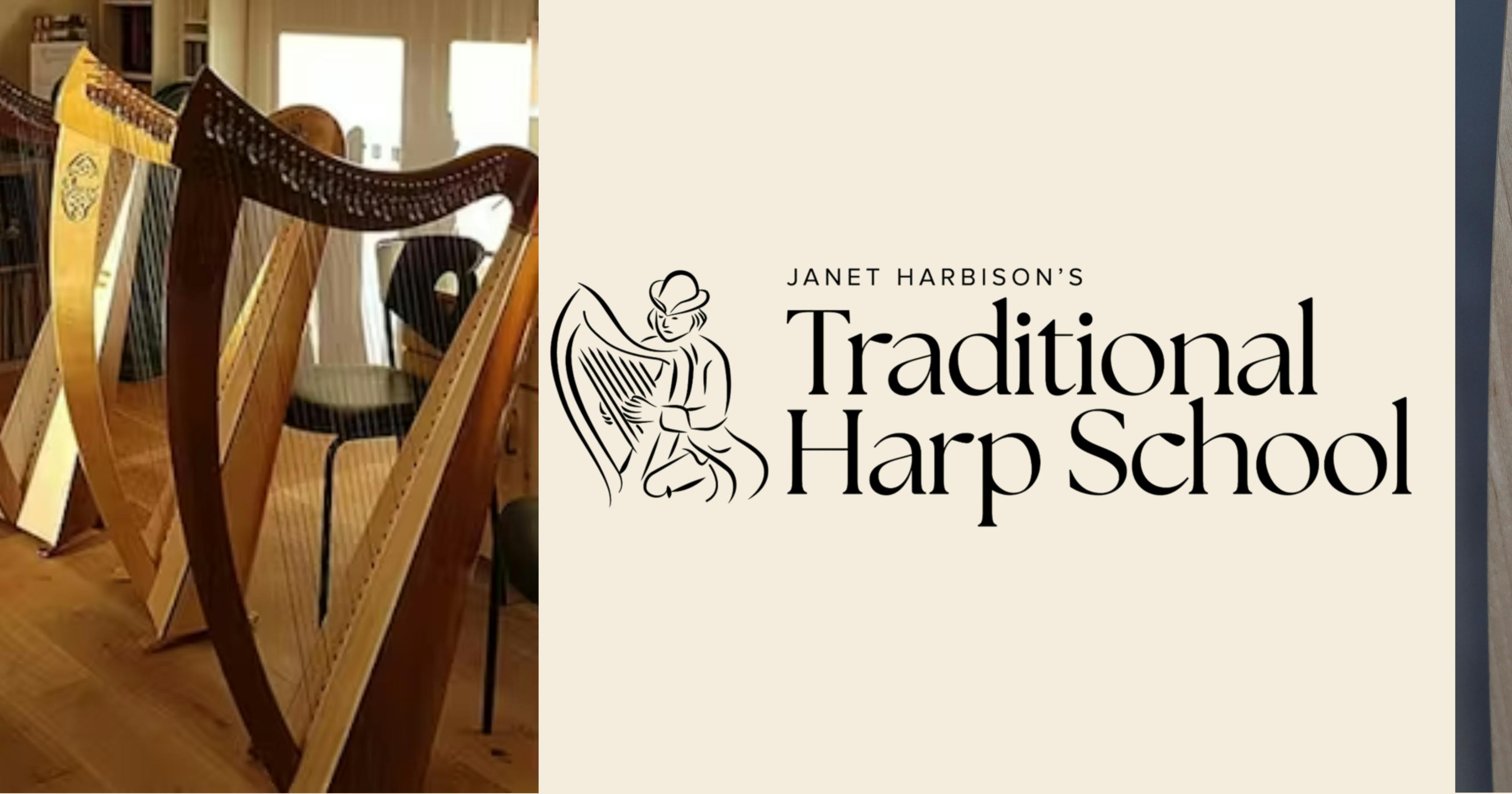
In the Warwick Harp Studio in St Nicholas Park, Warwick, Janet presents one day workshops for total beginners.
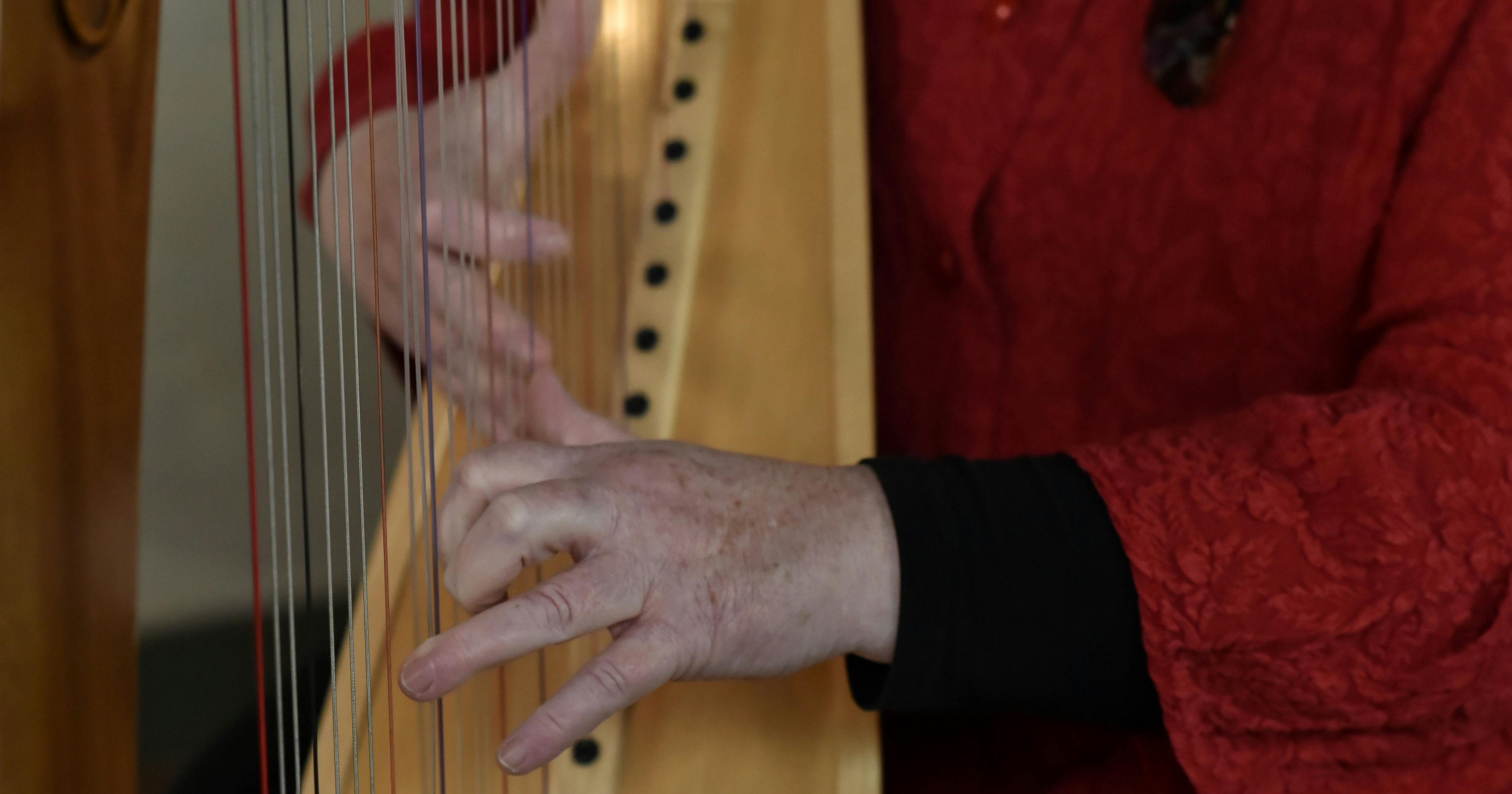
2-day weekend courses for Adult Players (minimum 1 year experience) in Shakespeare’s County
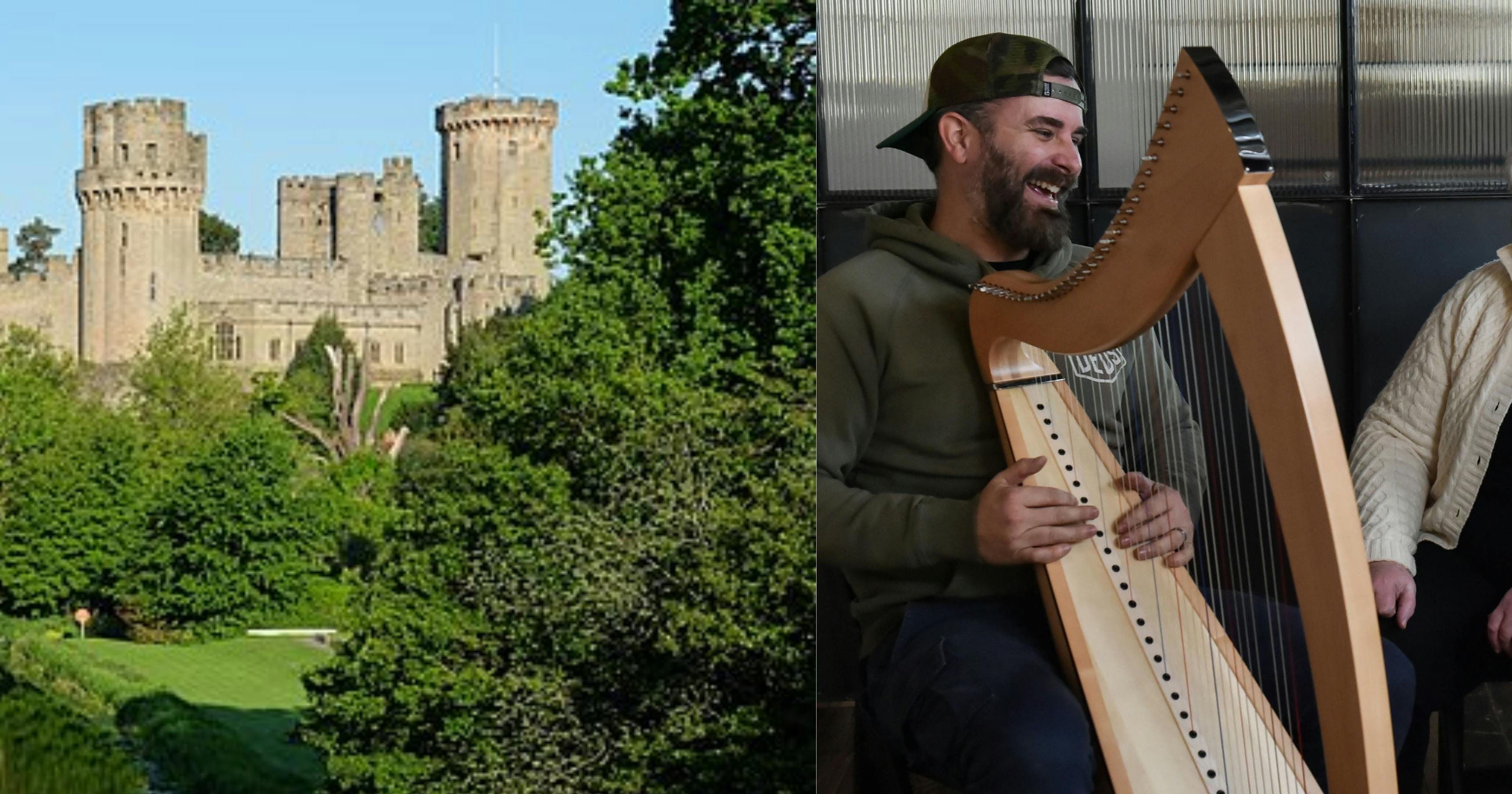
Located in the vibrant coastal town of Dungloe, in a holiday village complex, Janet presents five separate Summer School weeks for all levels of harp player and teacher. Progress is guaranteed with a max of 8 participants on any week.
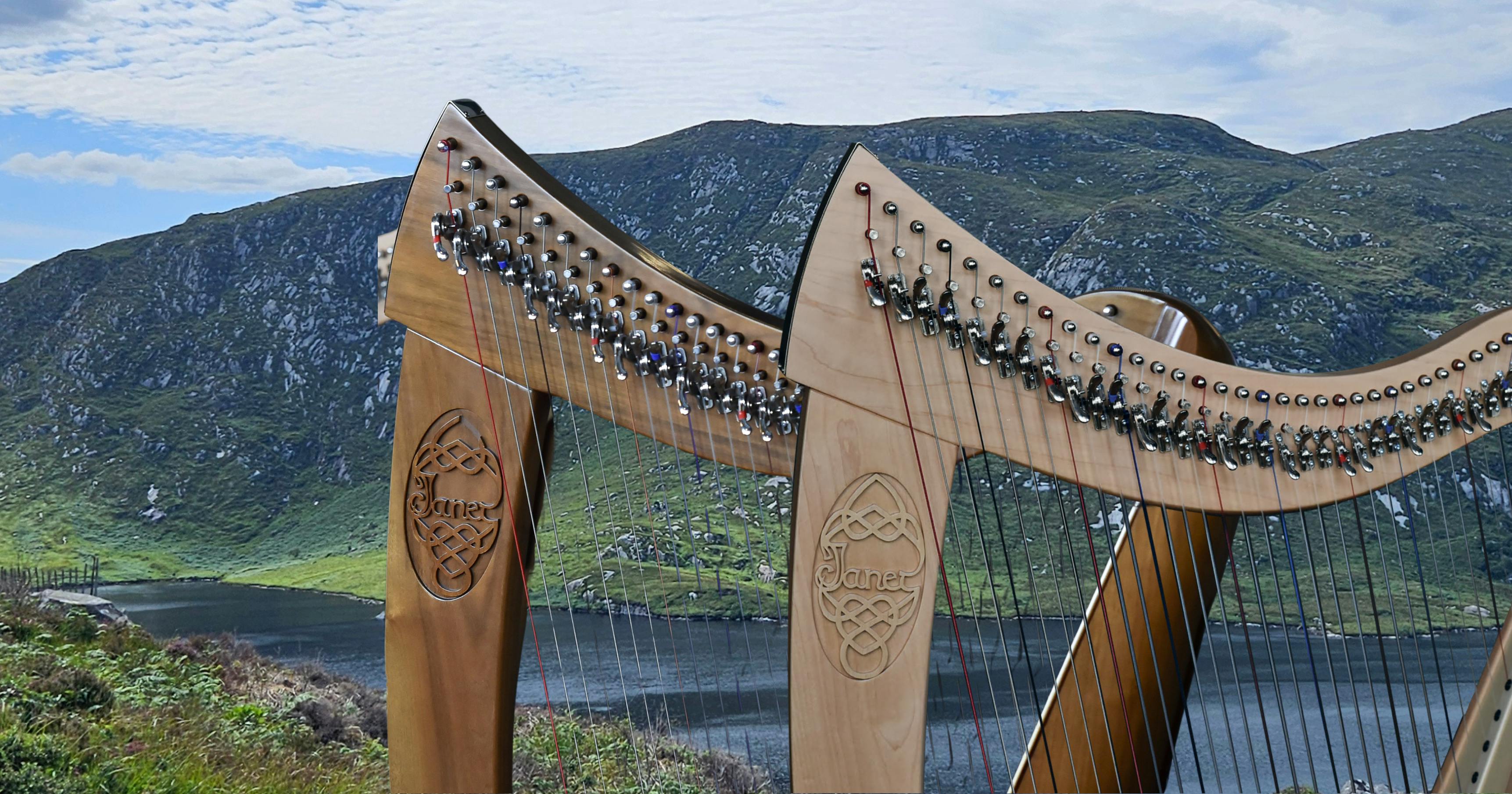
Lessons – Online or Live from the Harp Studio, Warwick
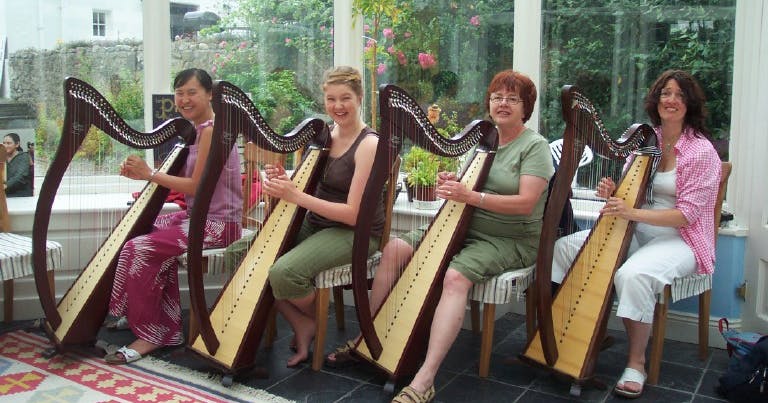
Weekly or Flexible, one-on-one live lessons with Janet online, wherever you are

The Harbison Harp Studio is proud to offer teachers and students a range of harps for hire. The rates depend on the duration and time of the year of the hire and all particulars are listed on the Hire Application Form.
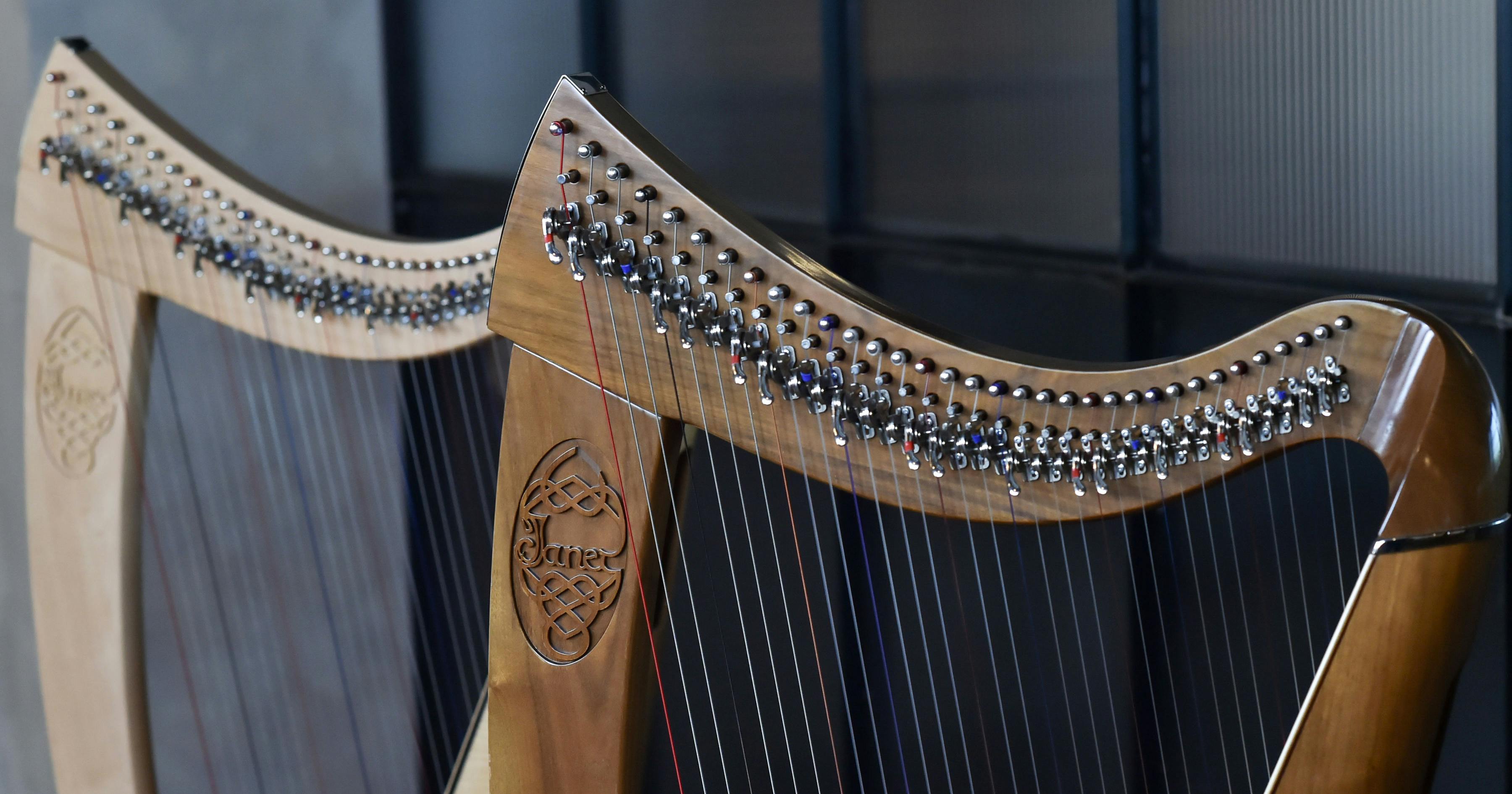
Be the first to know about new courses, updates on Harp weeks, upcoming events, concerts and more.
Copyright © 2025, Janet Harbison. All Rights Reserved
Site by Designmc